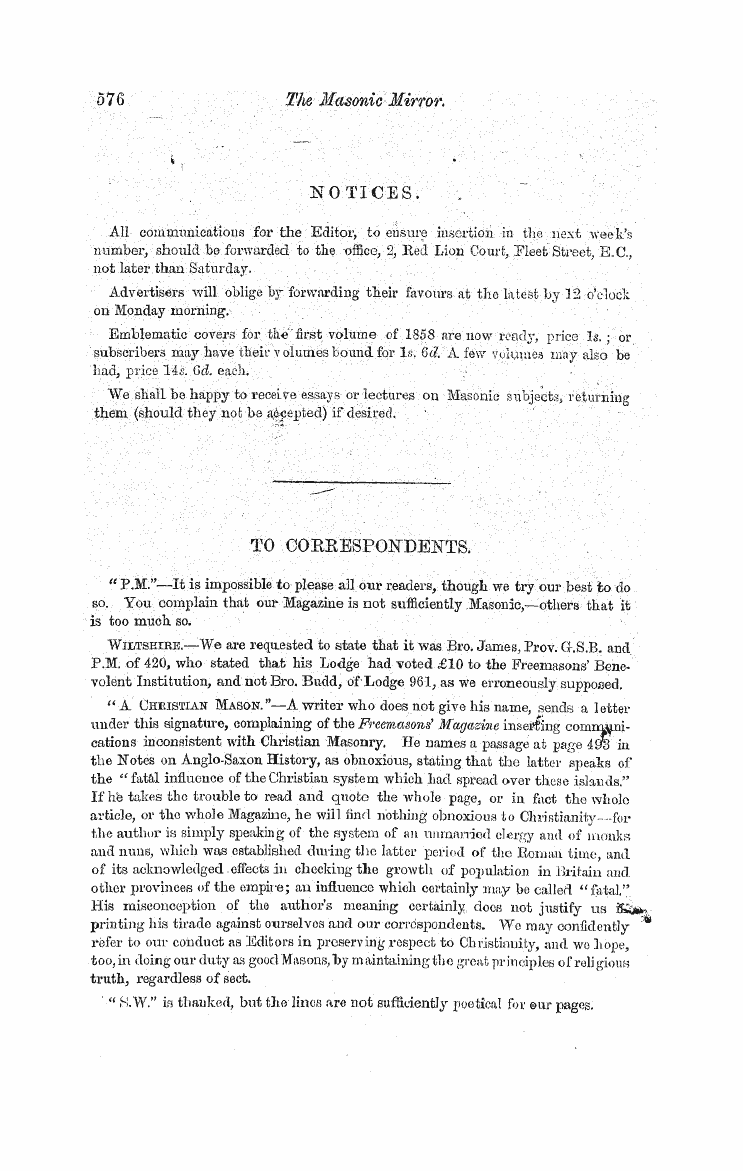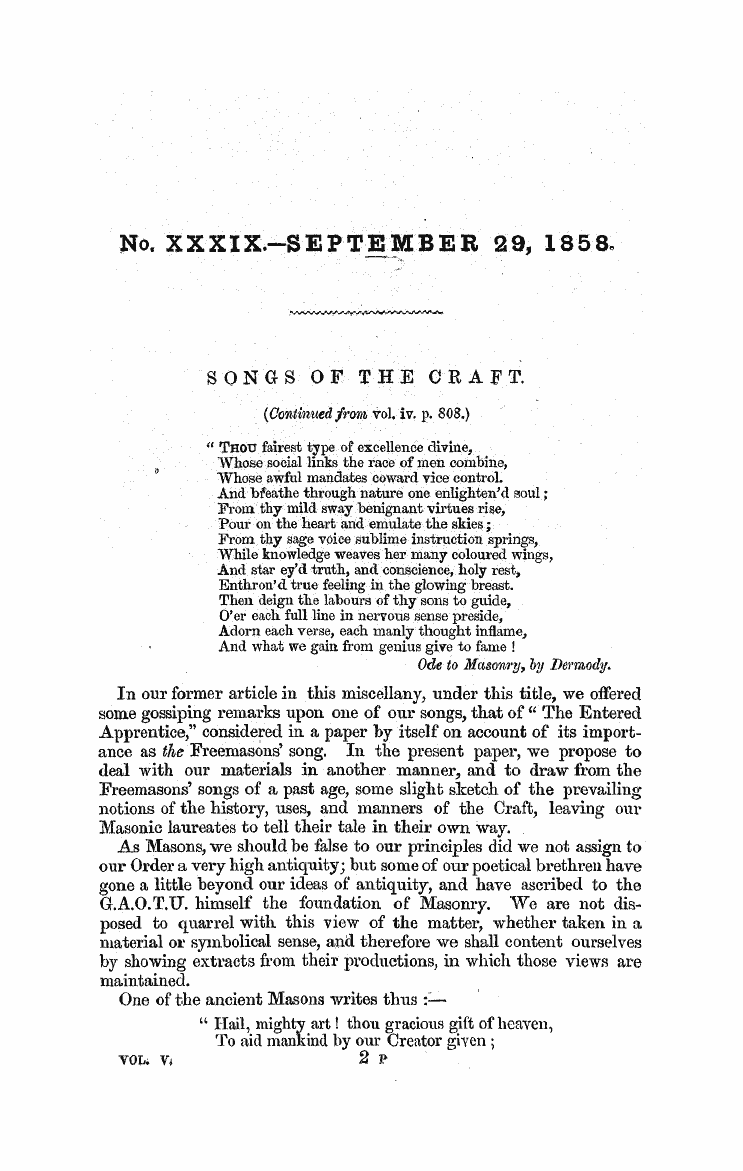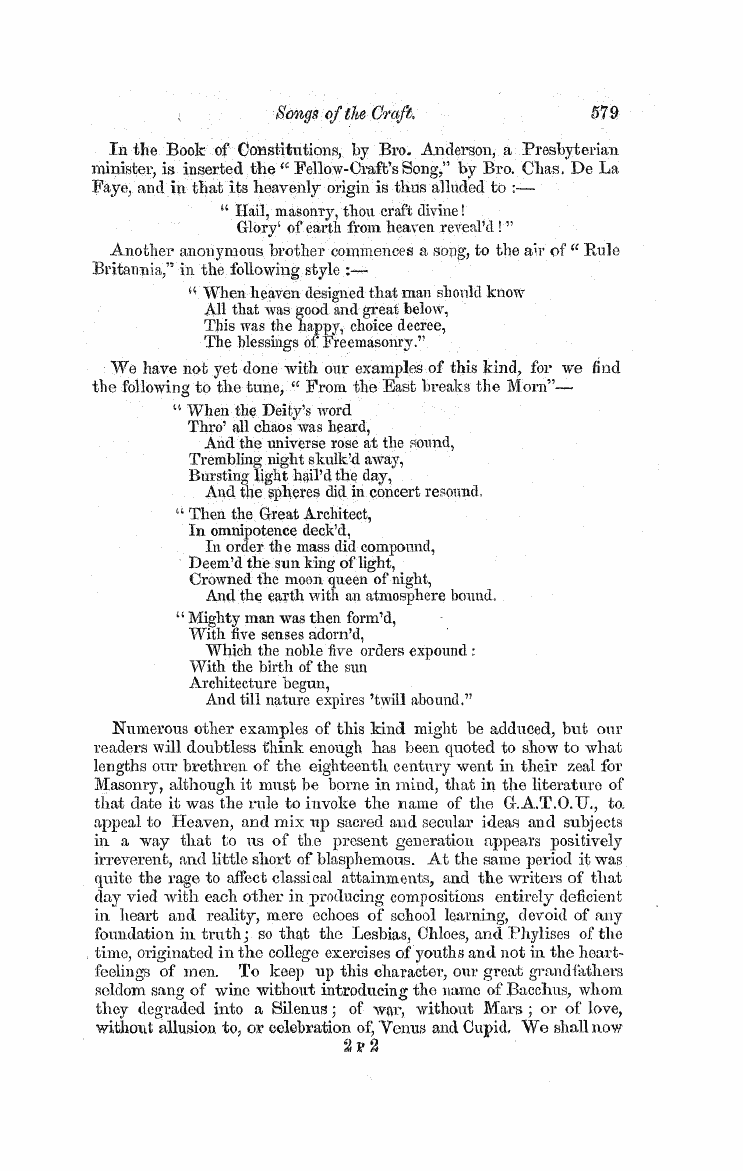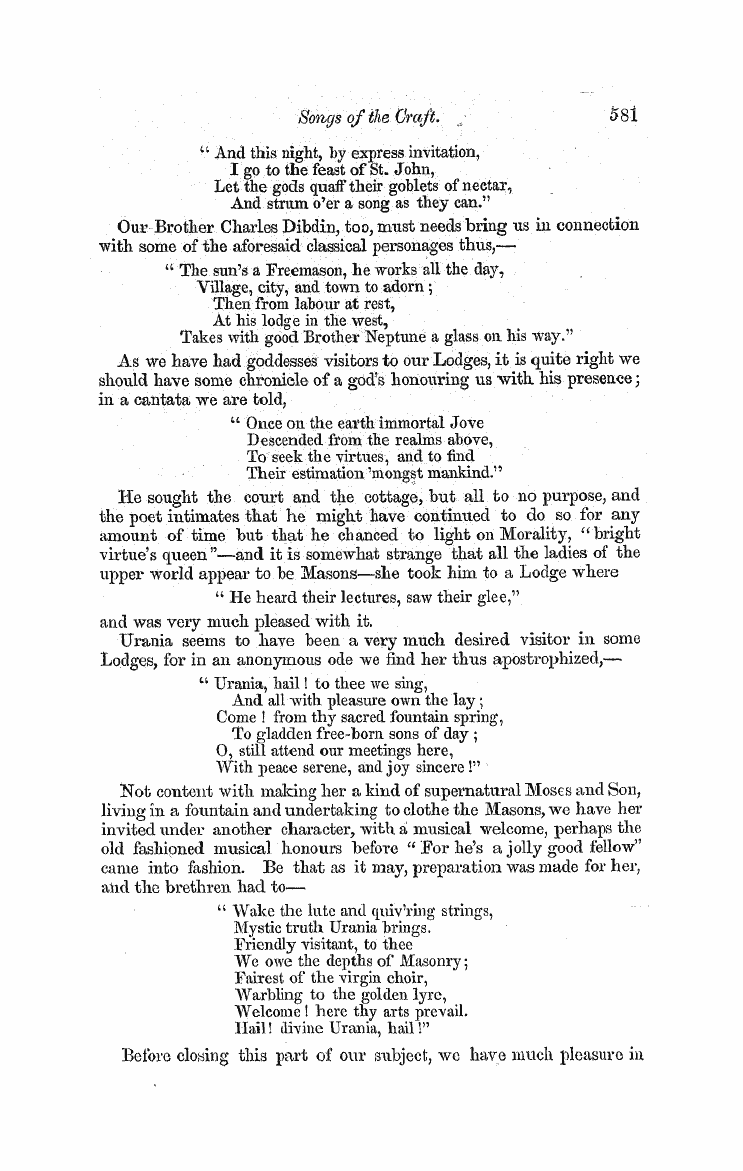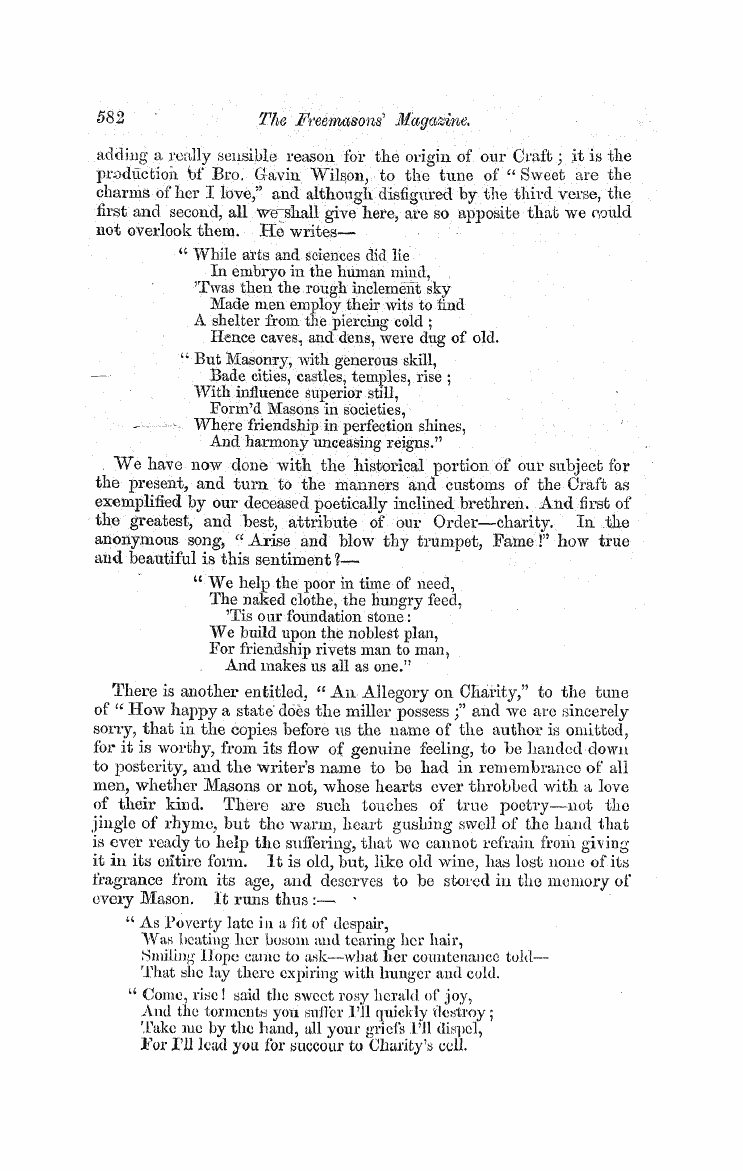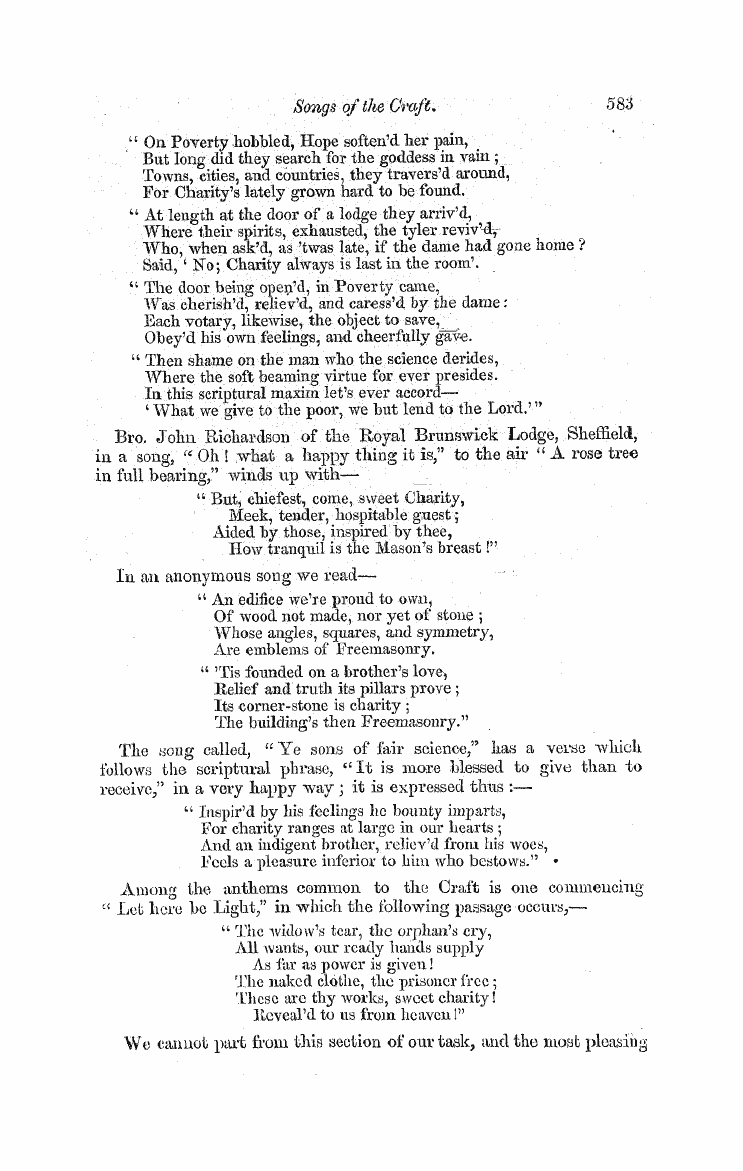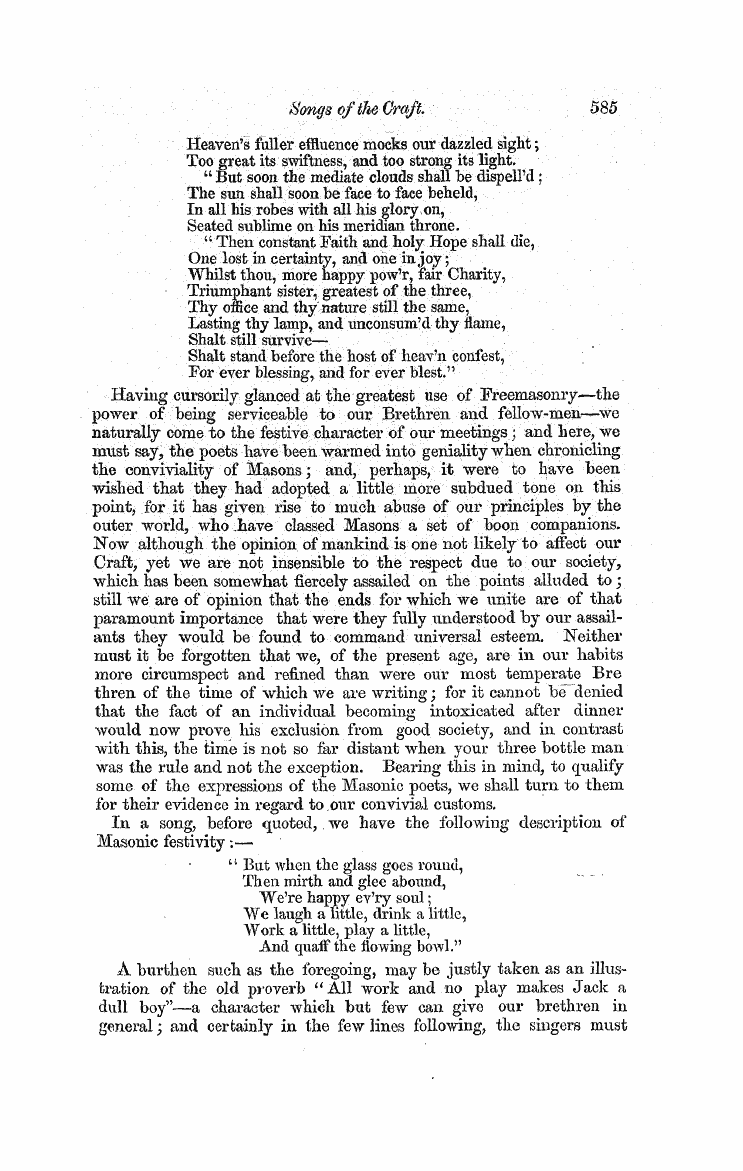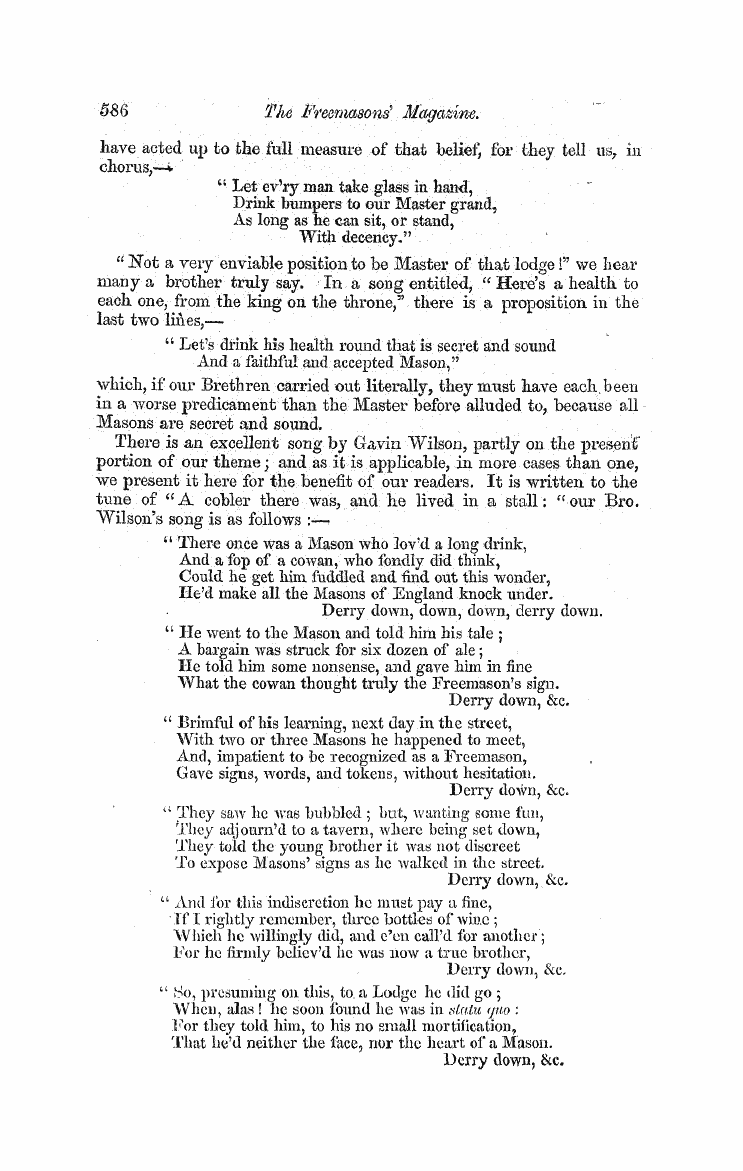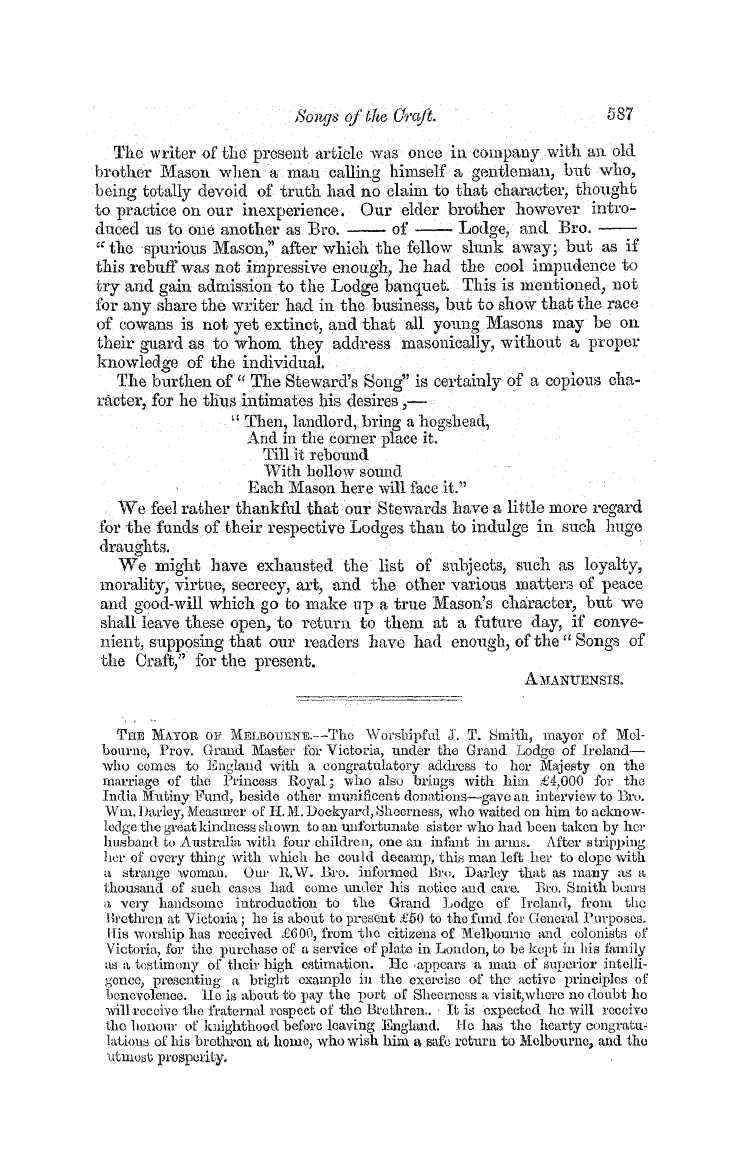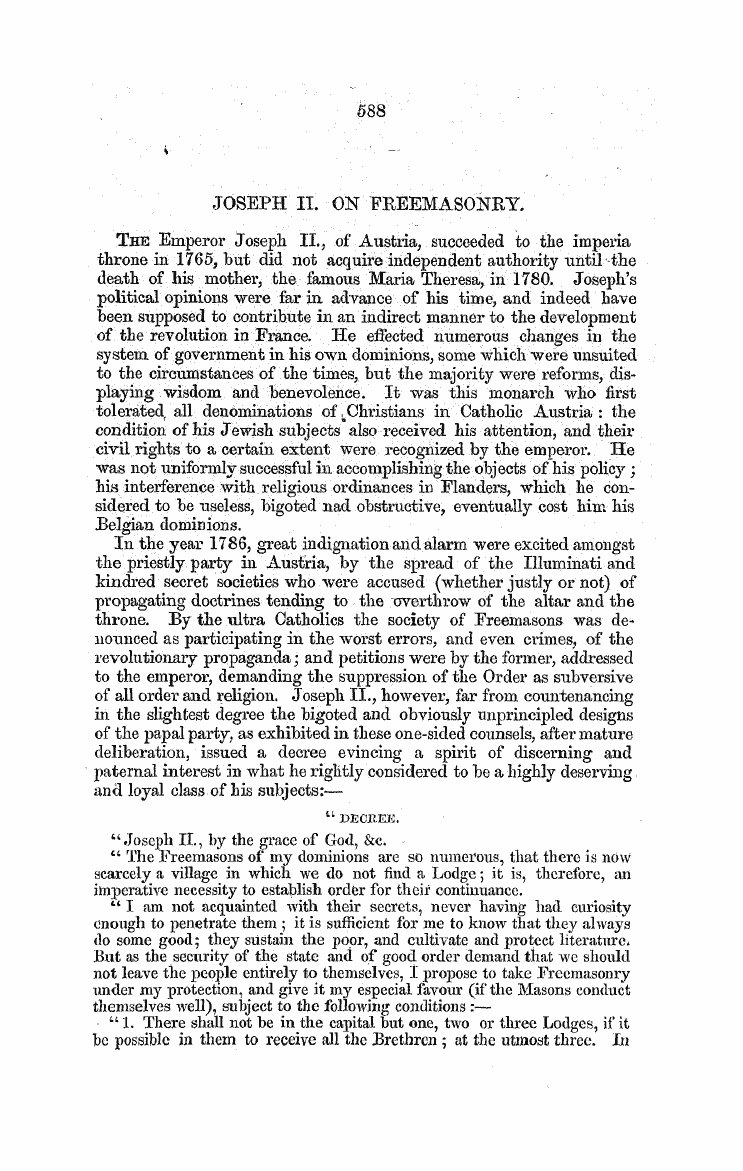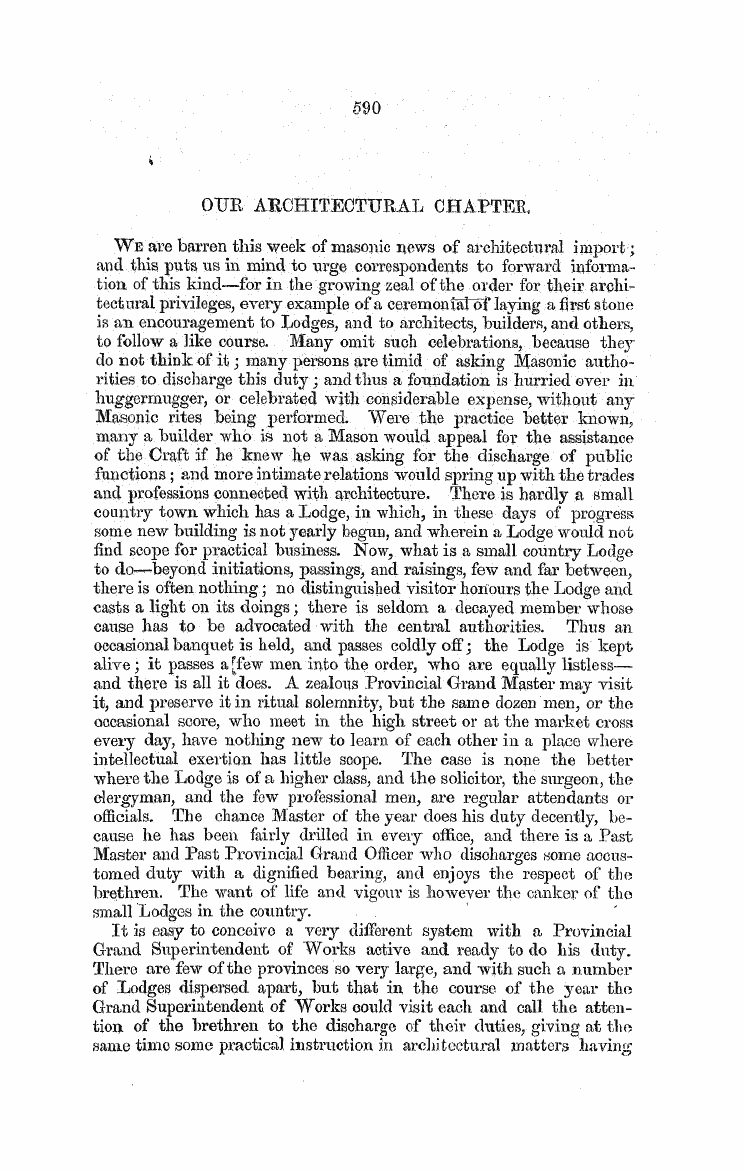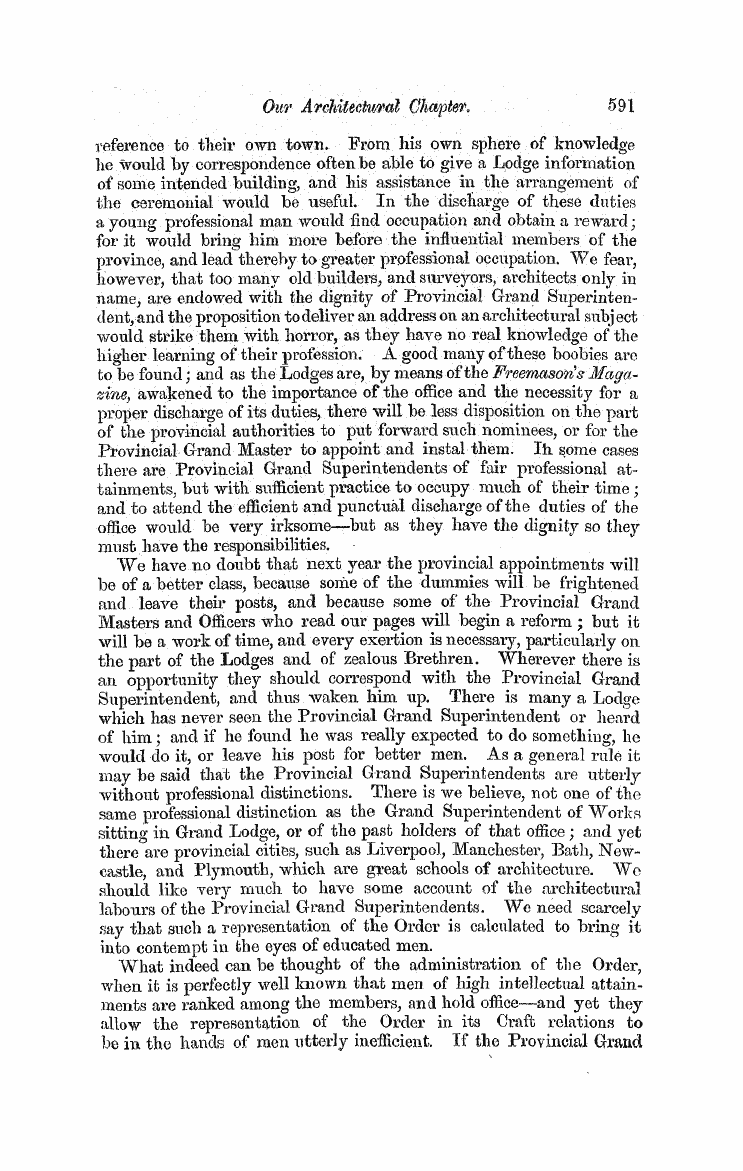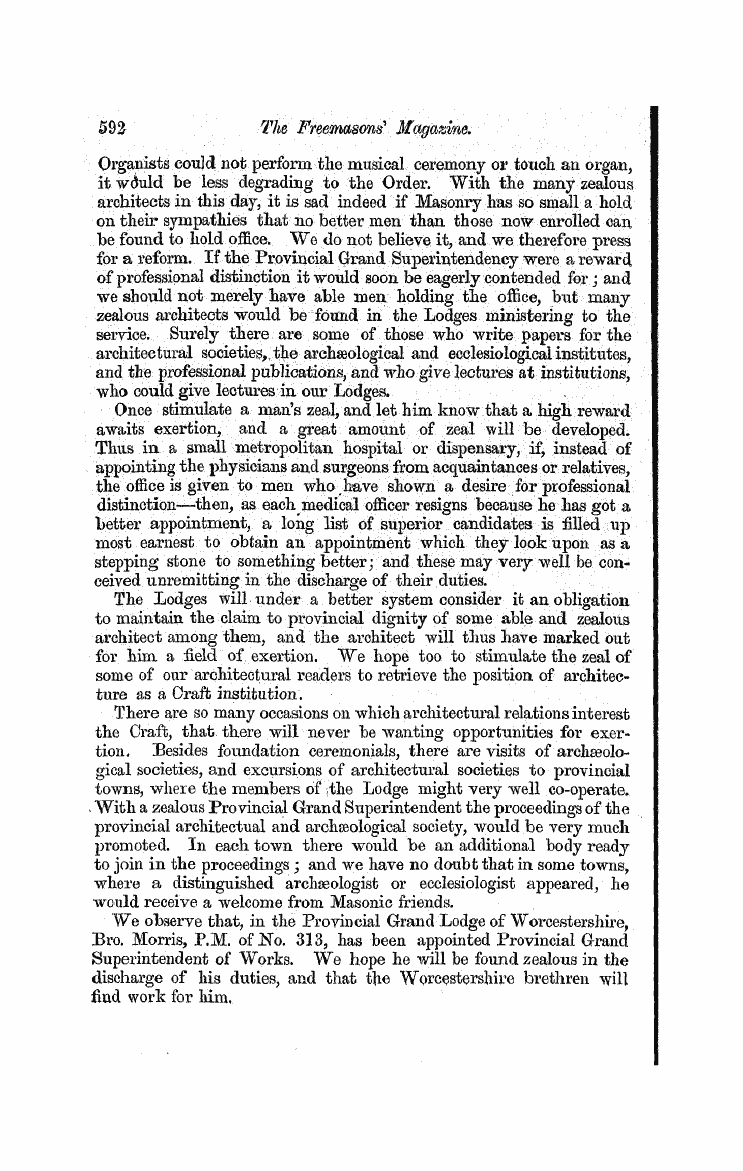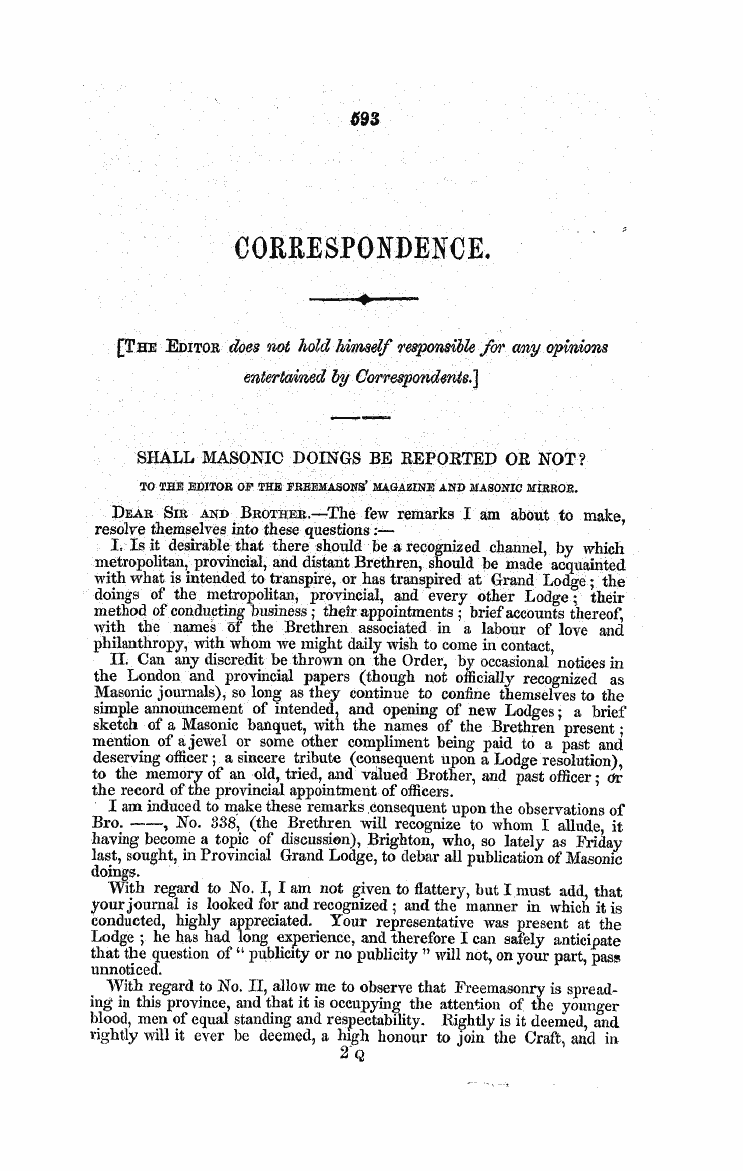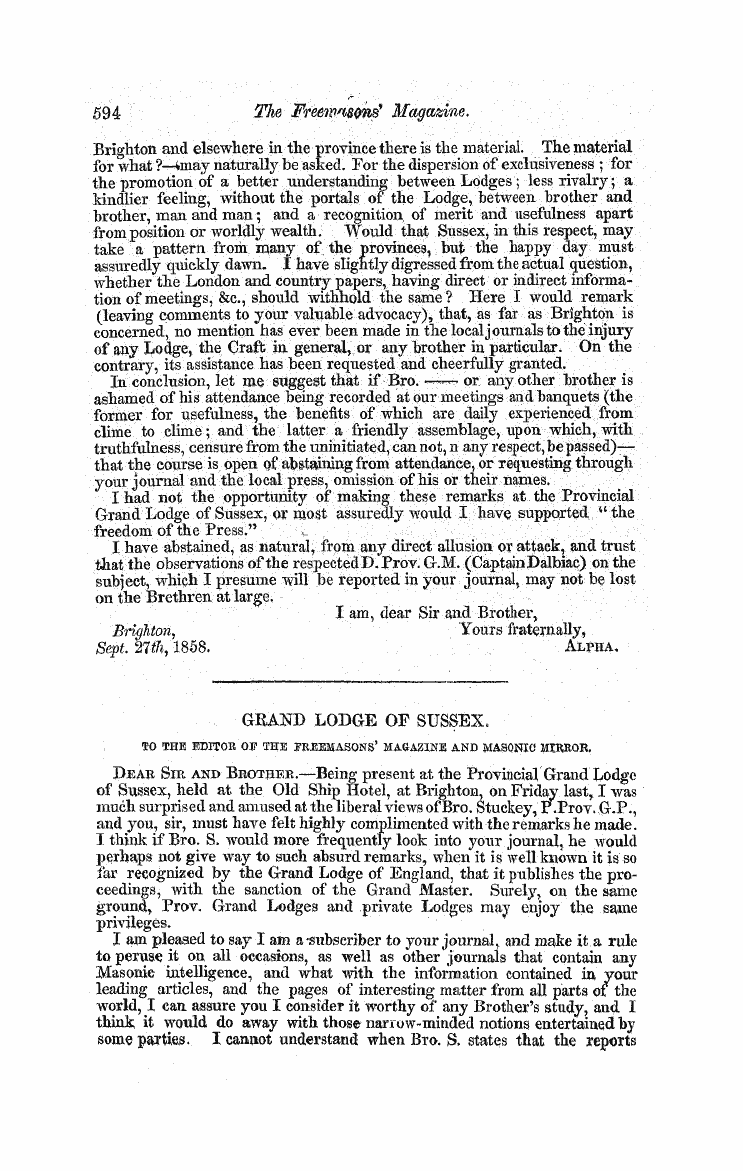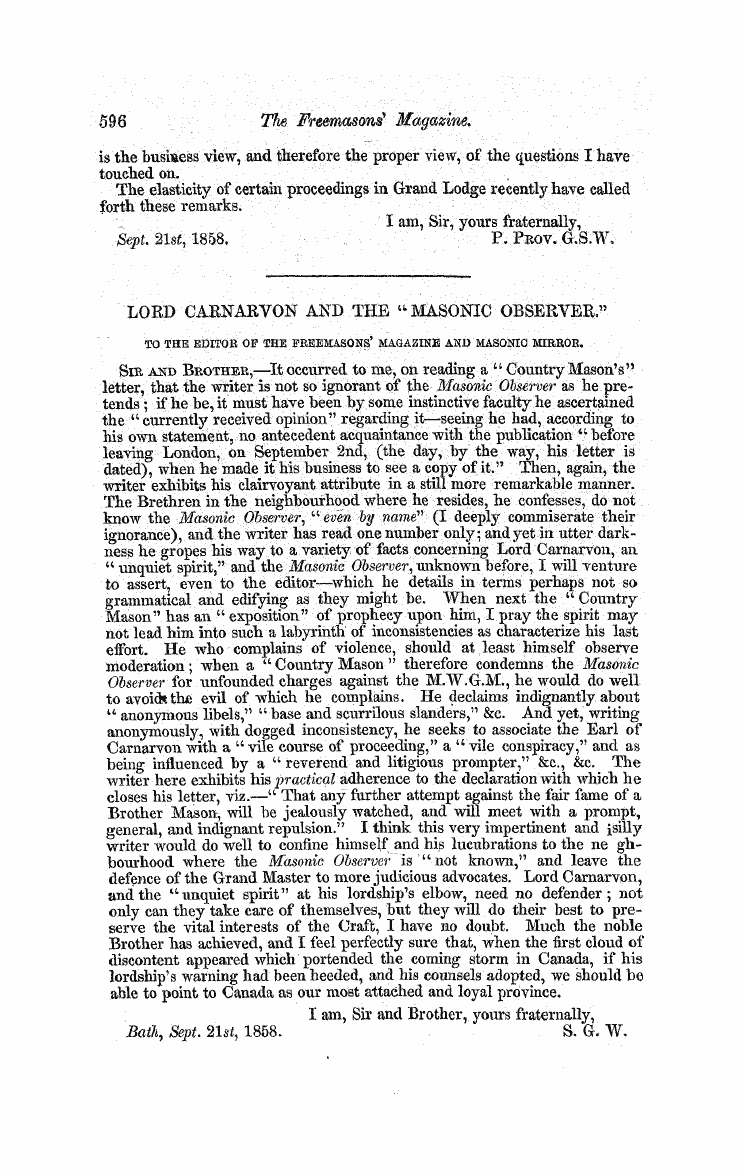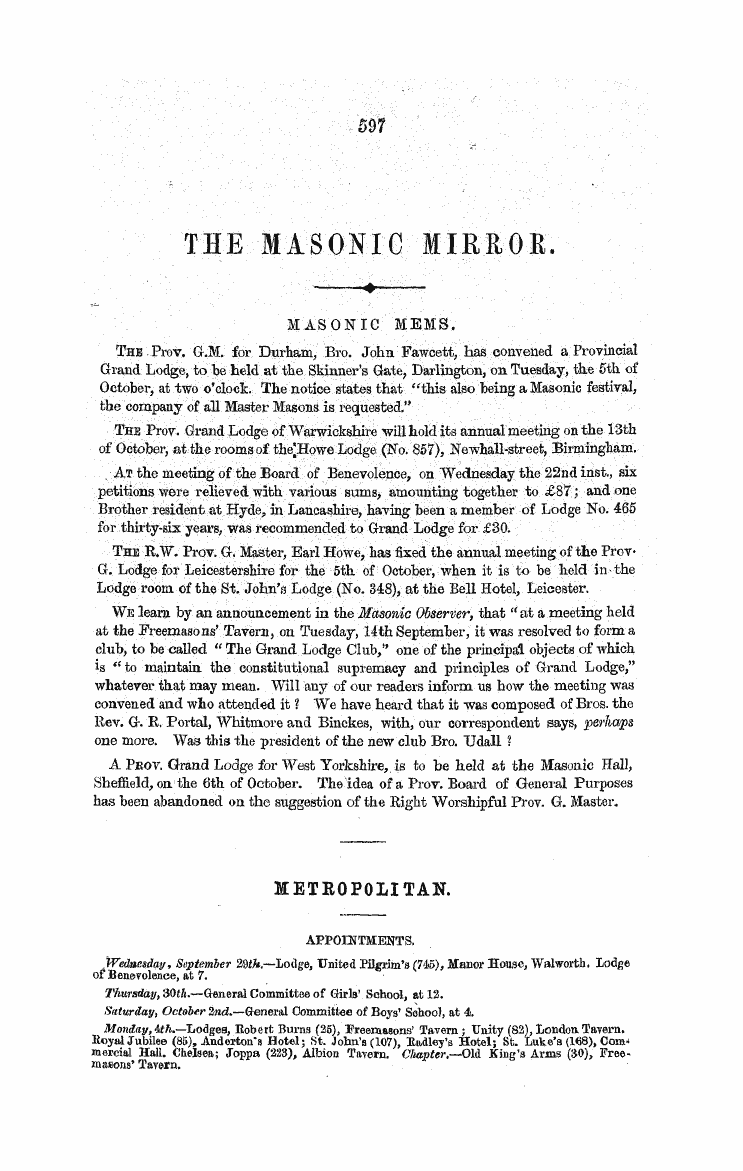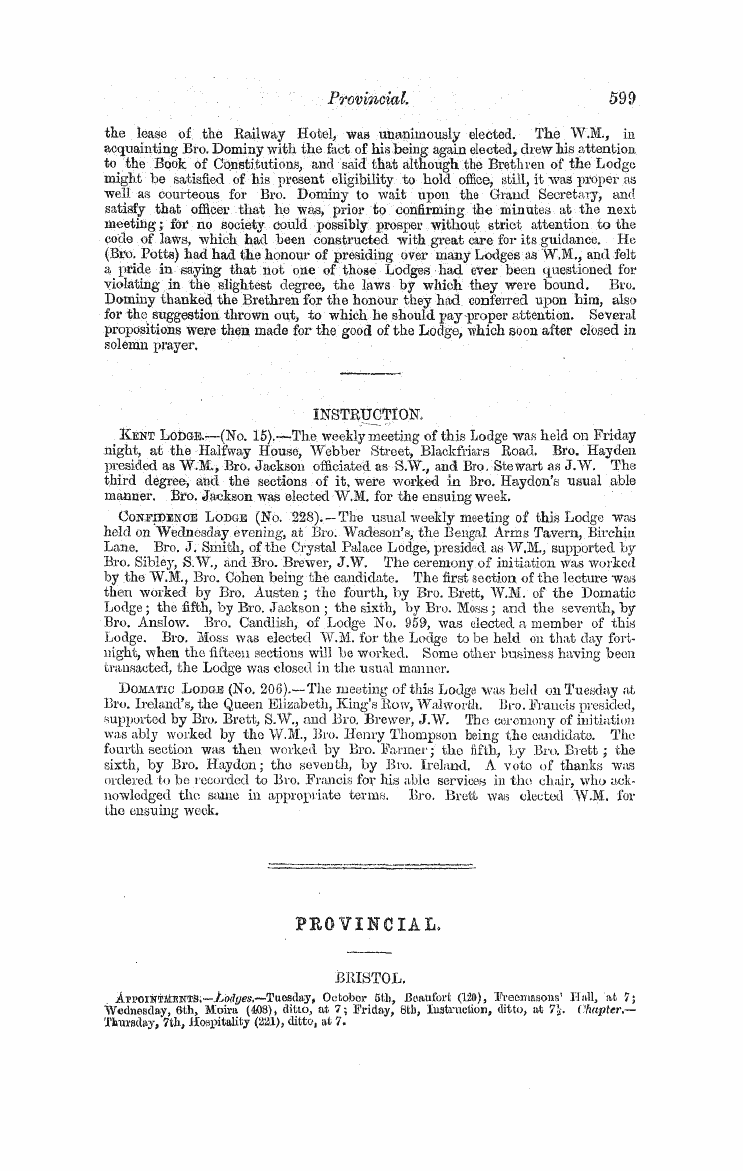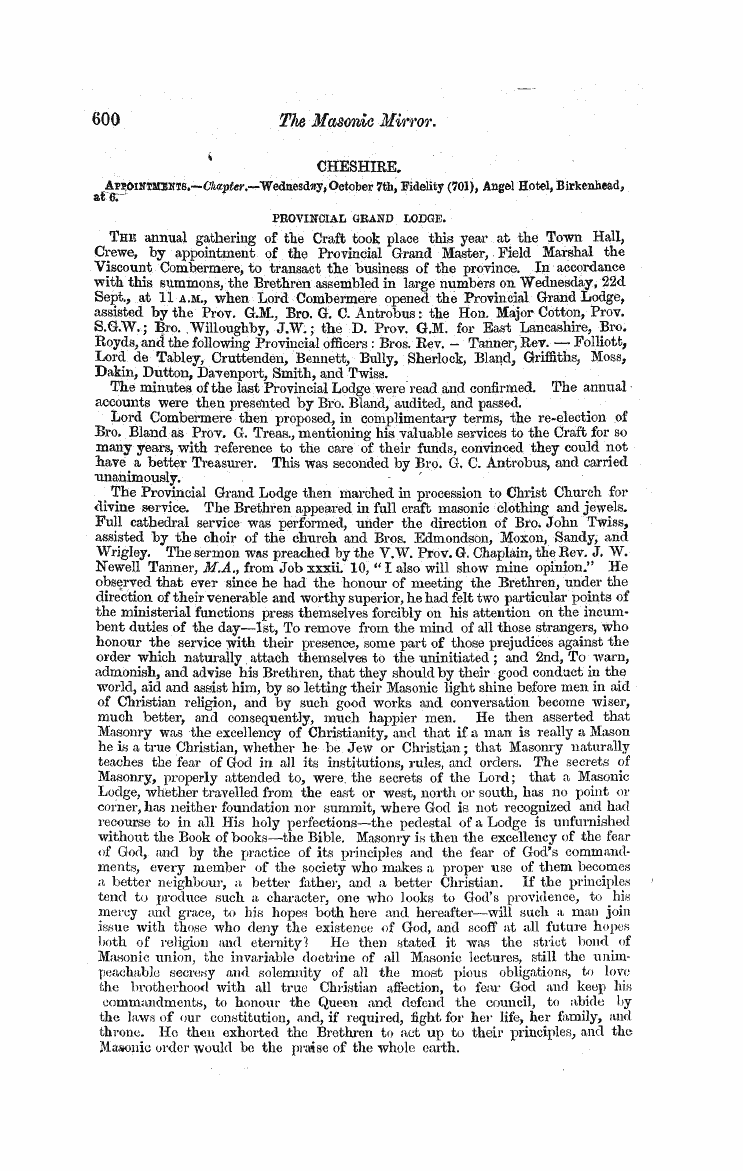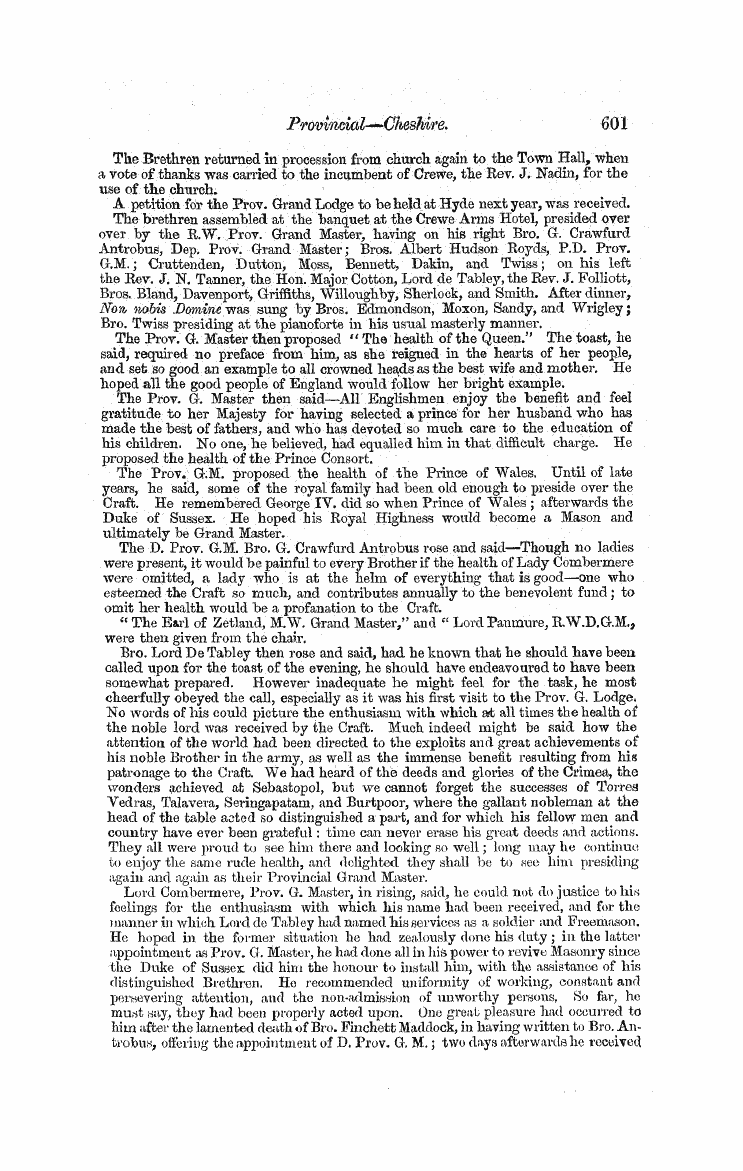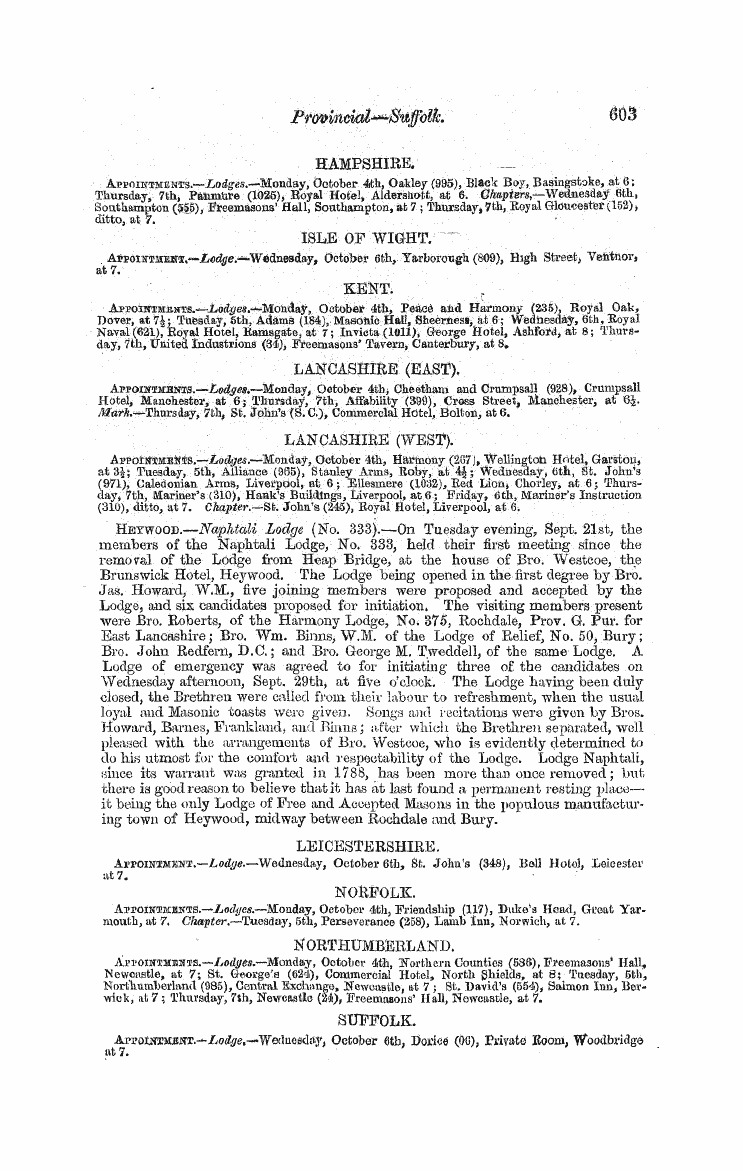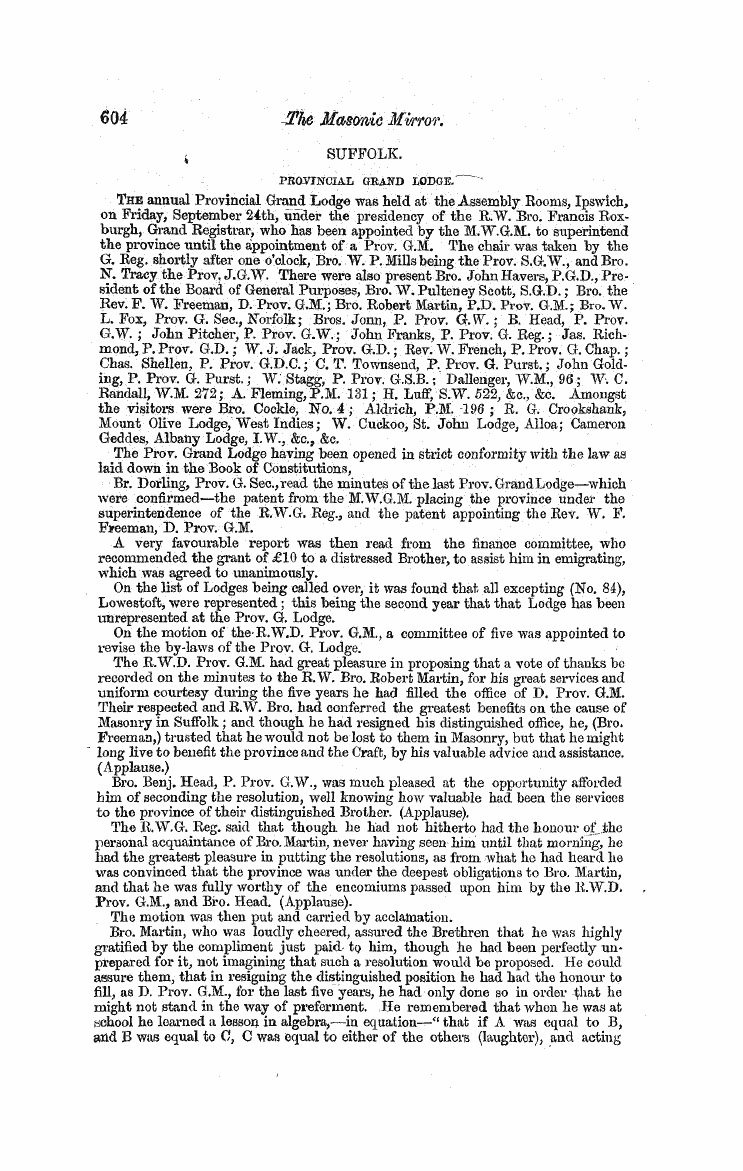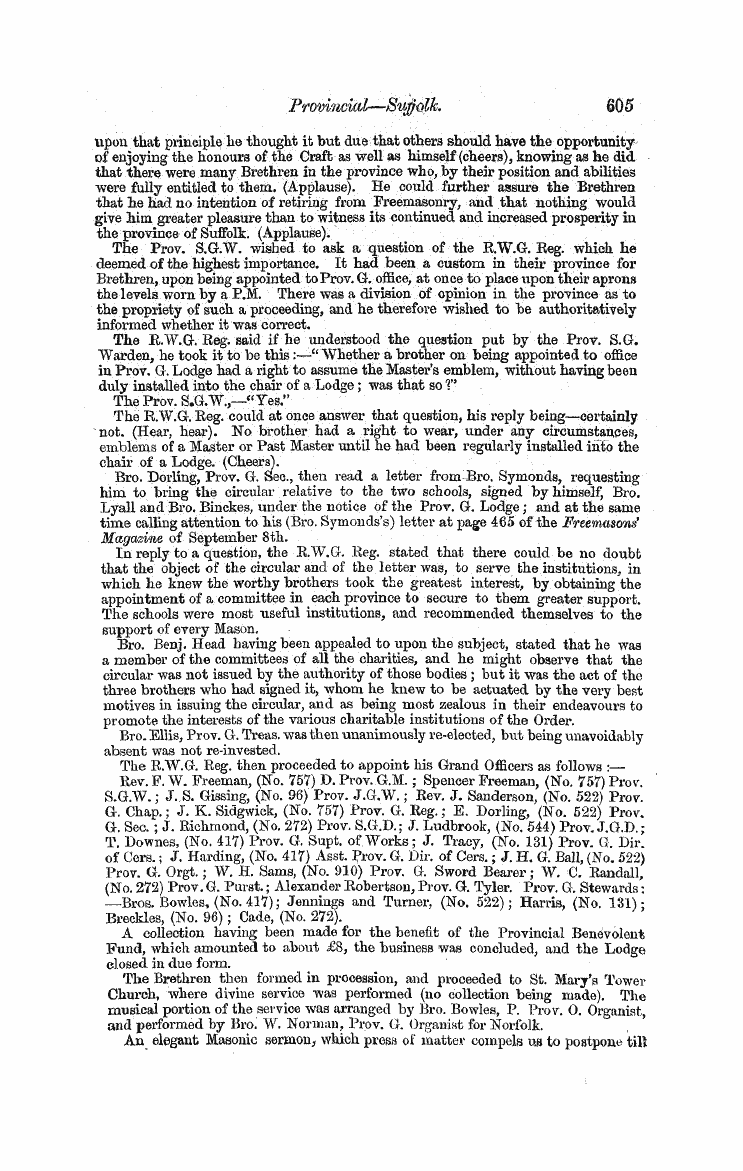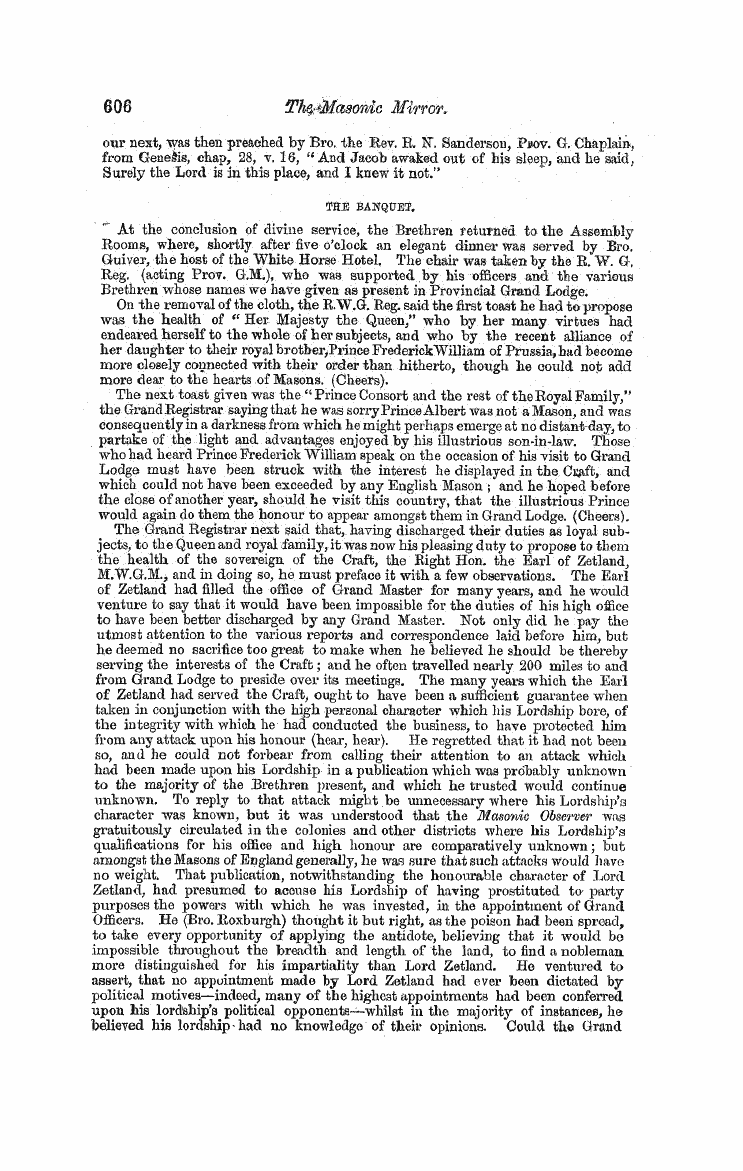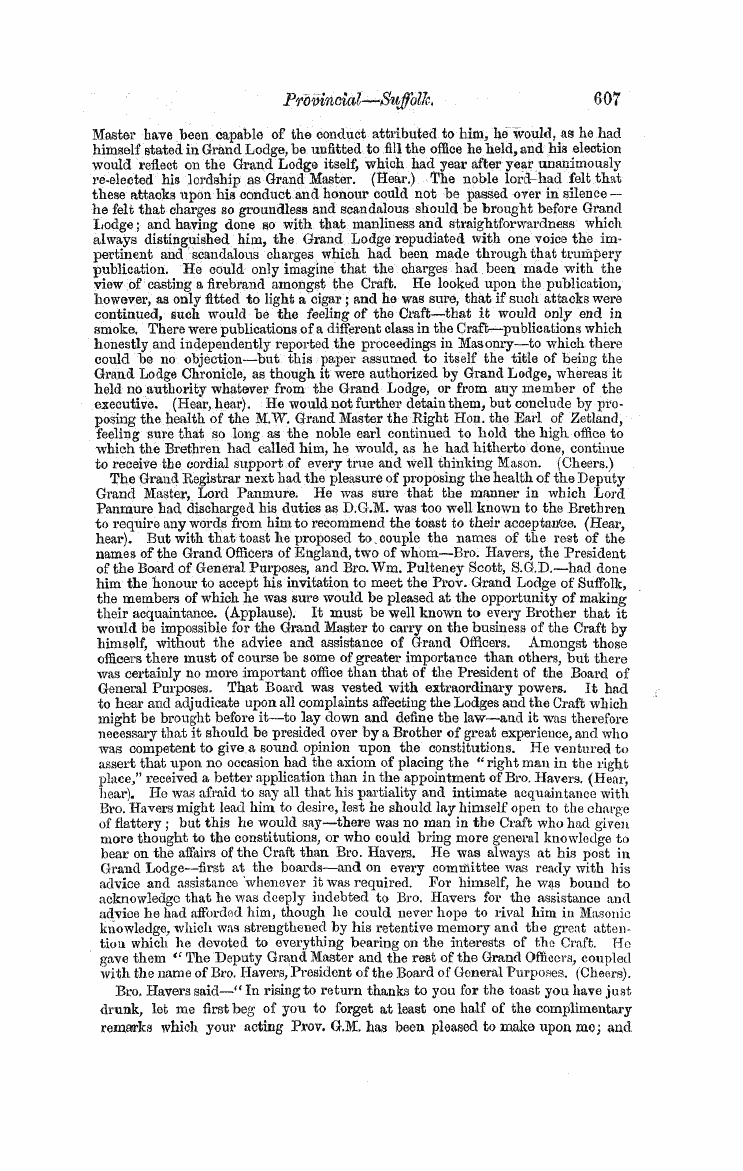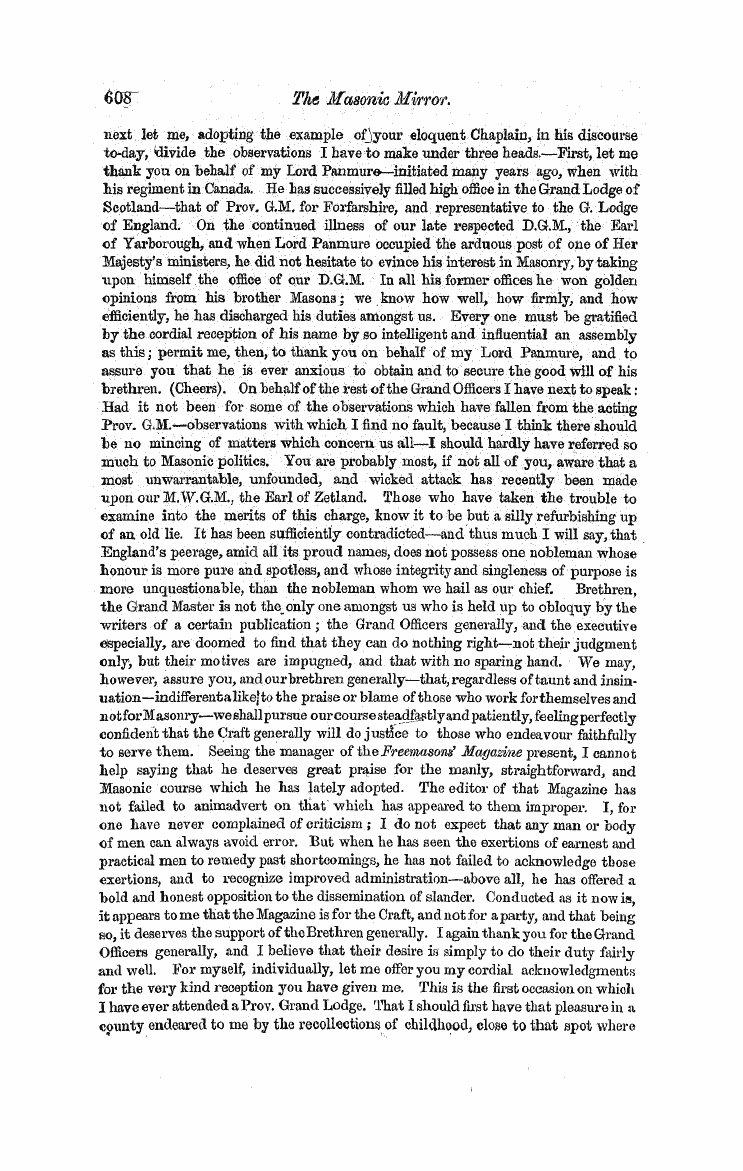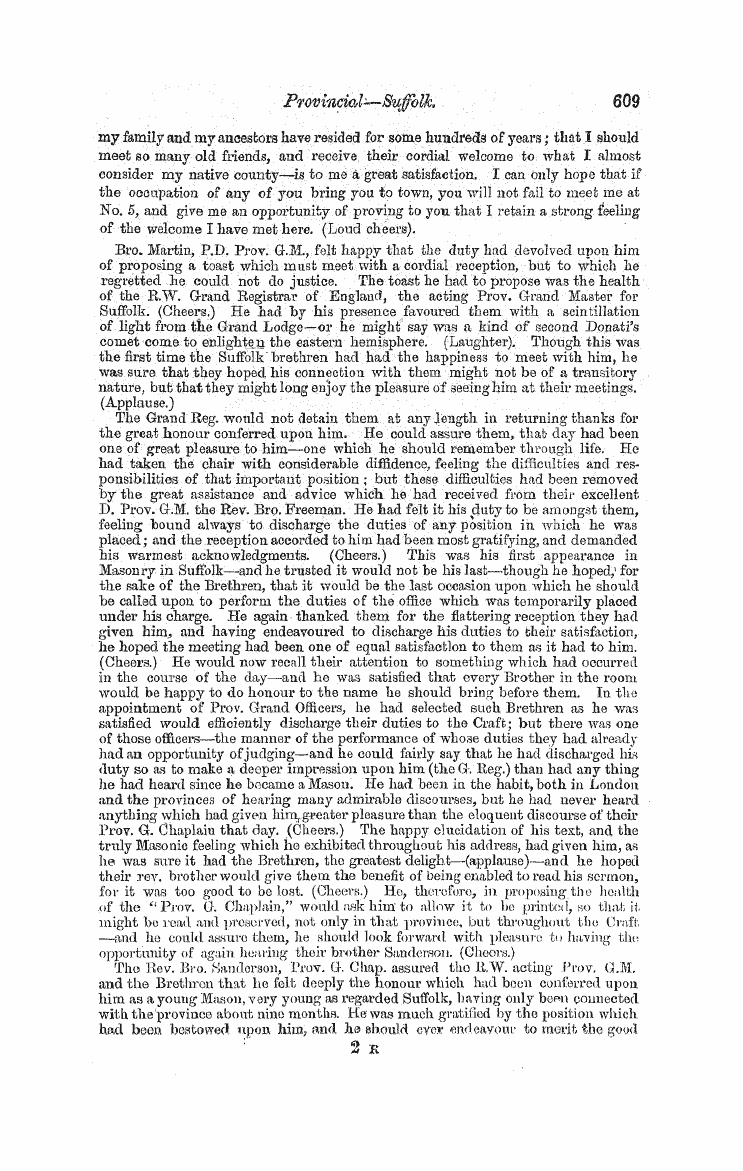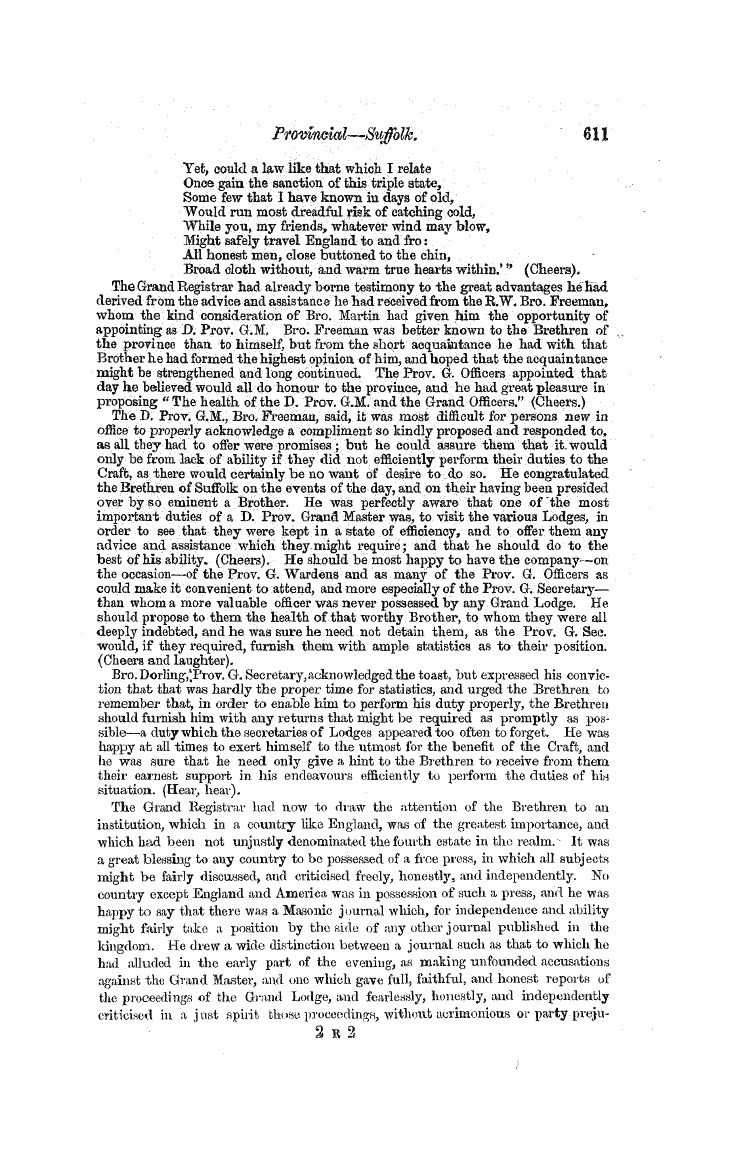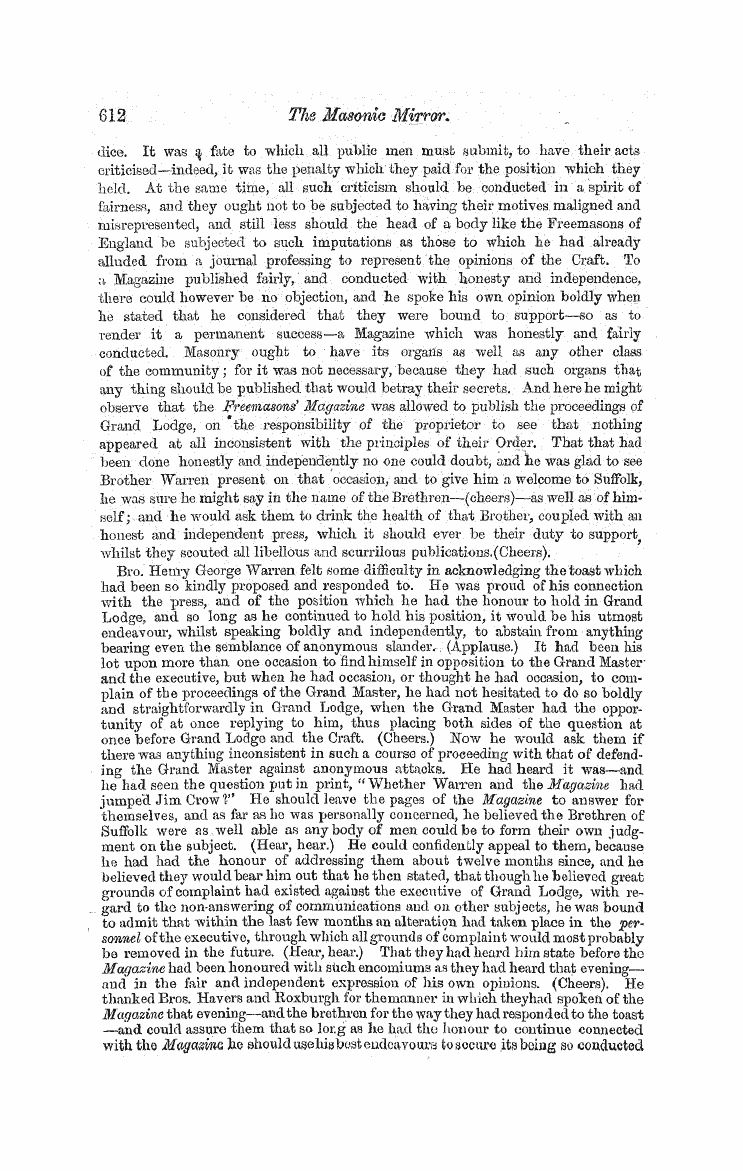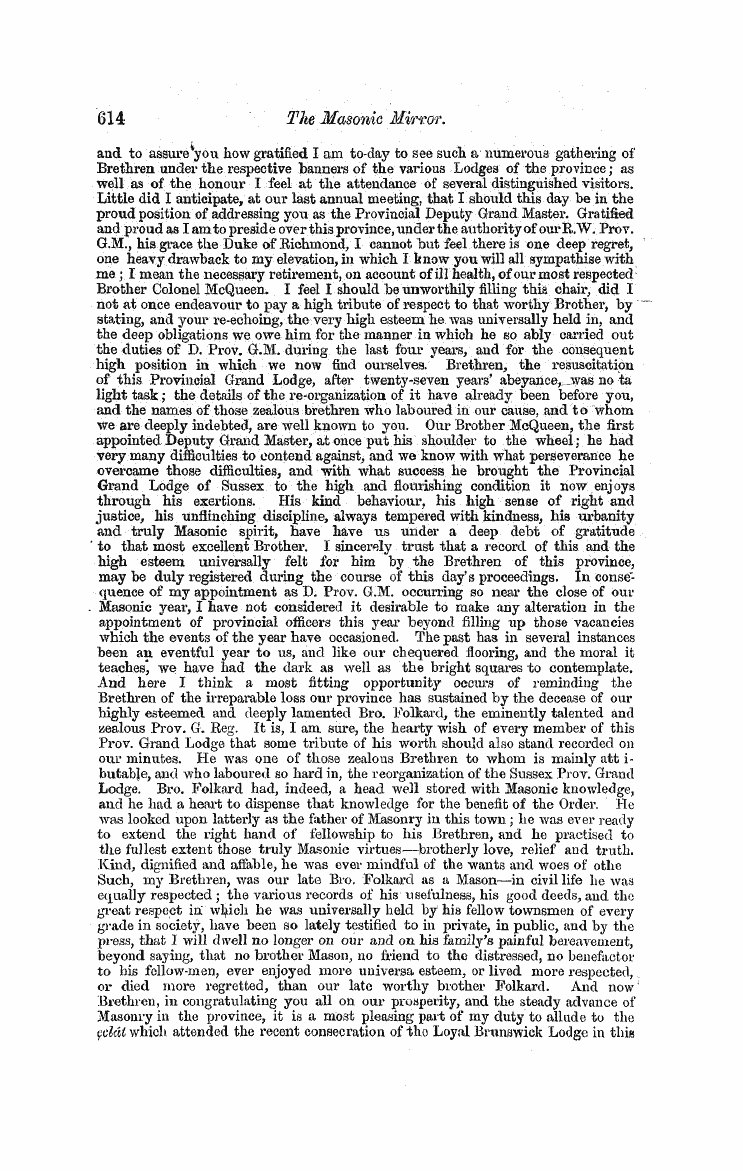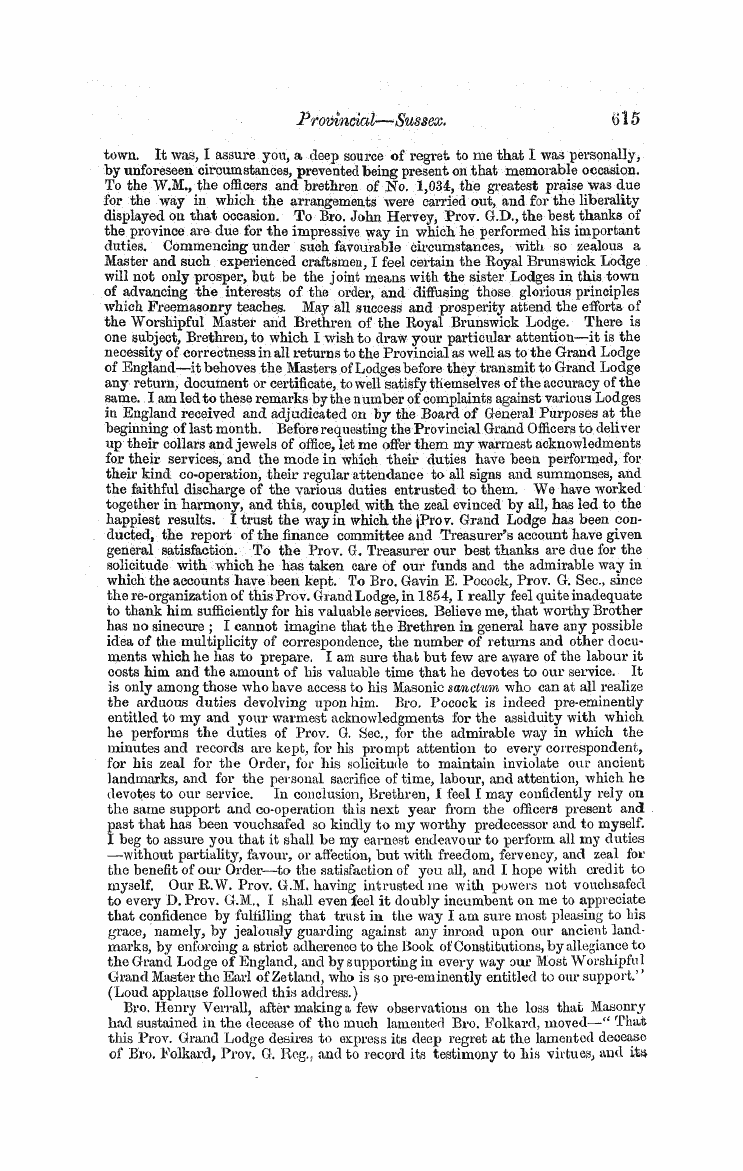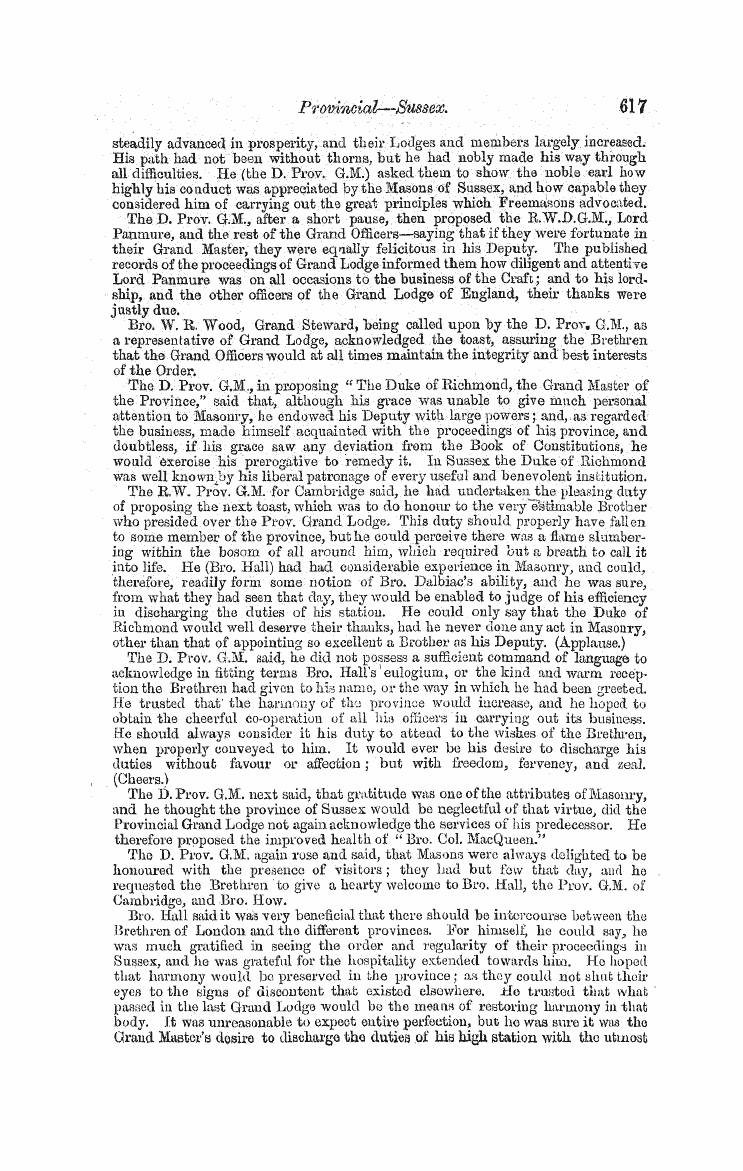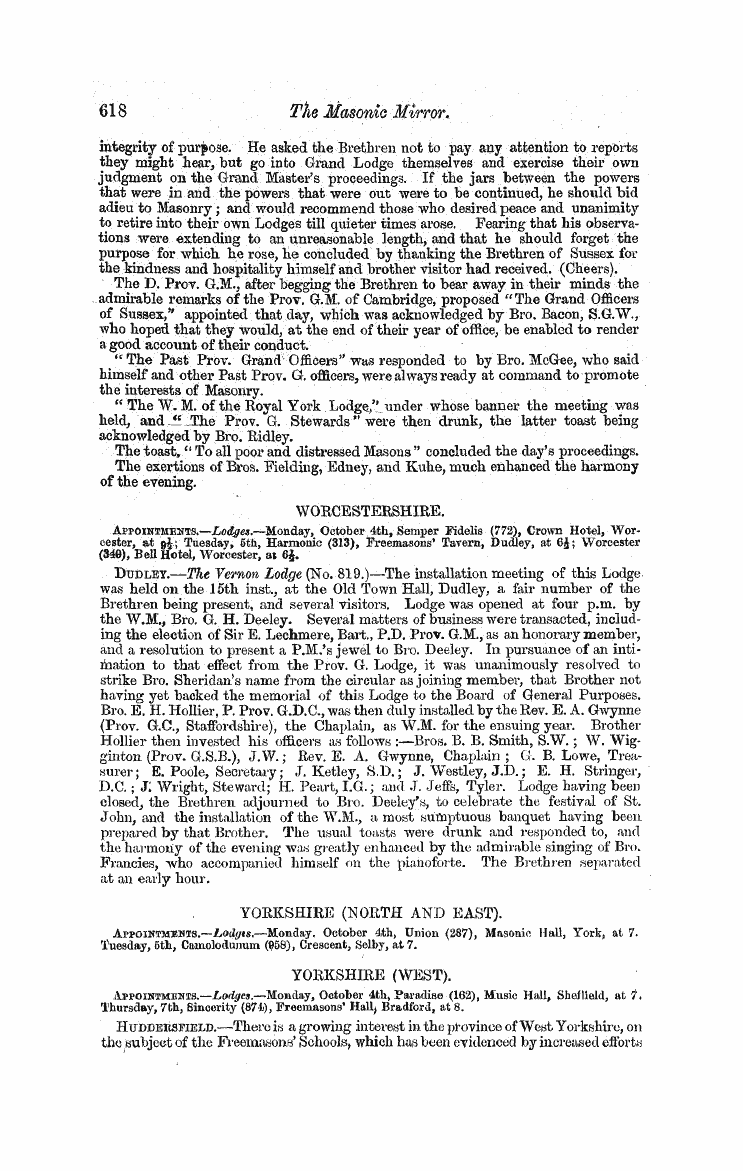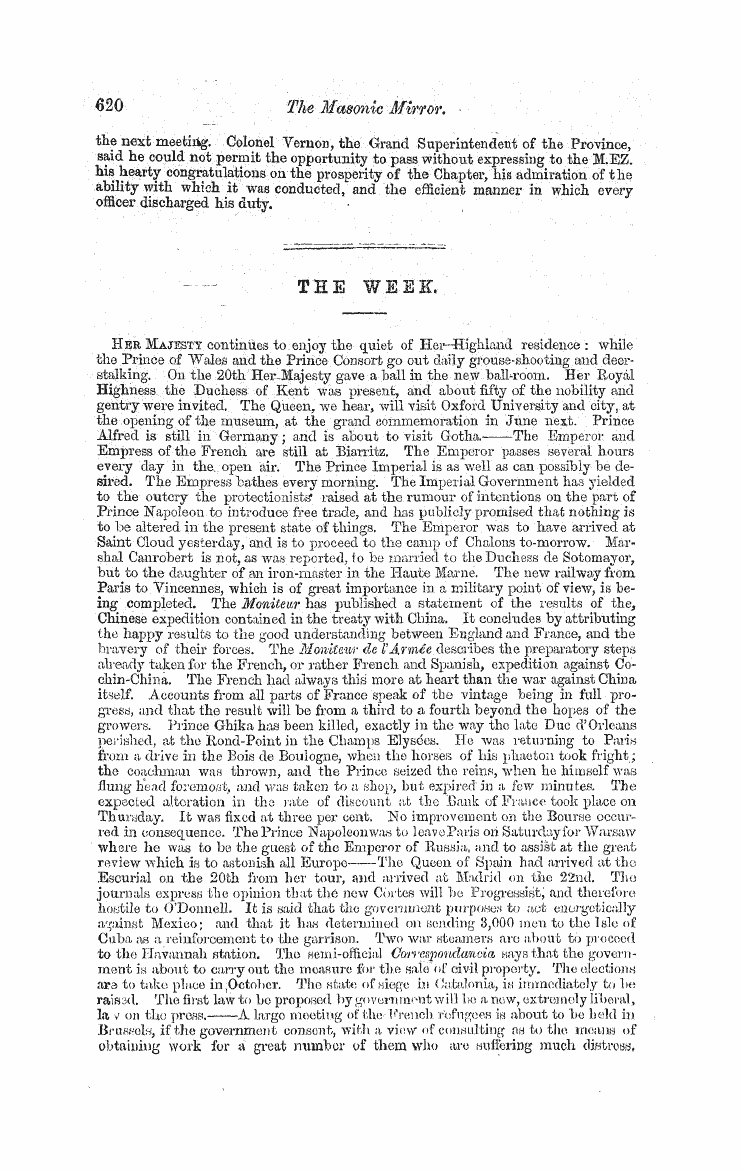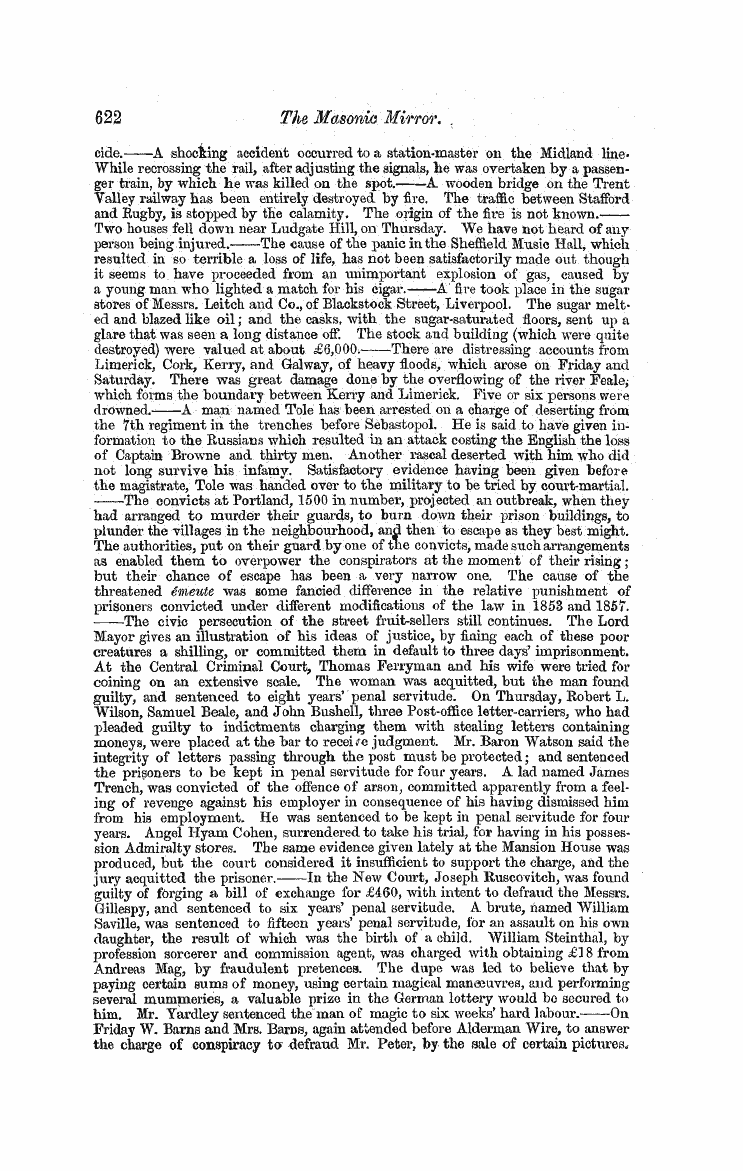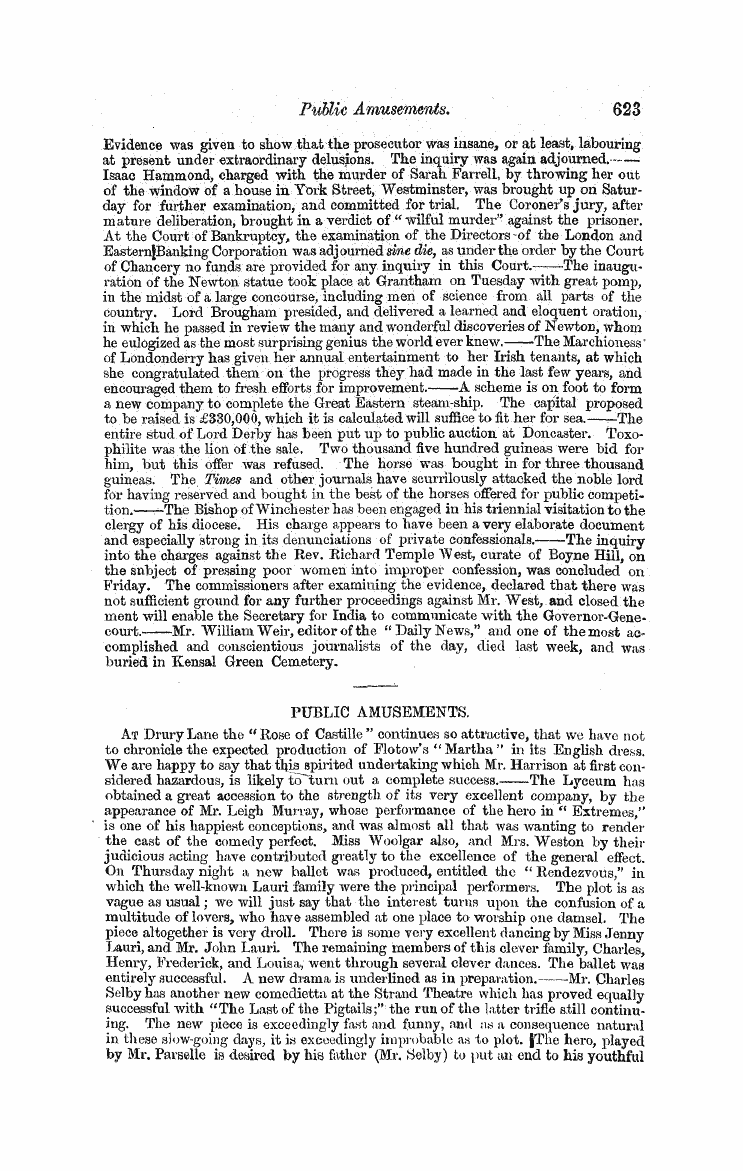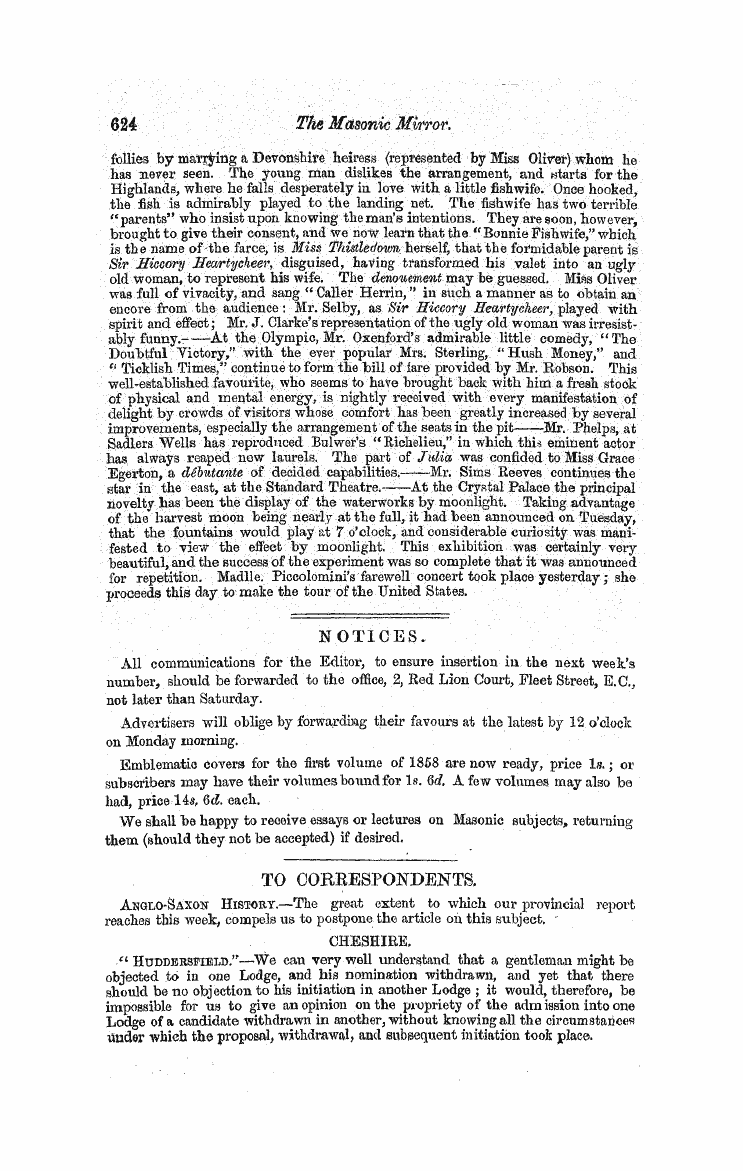-
Articles/Ads
Article THE SEGEEt SOOIEfM ← Page 2 of 10 →
Note: This text has been automatically extracted via Optical Character Recognition (OCR) software.
The Segeet Sooiefm
self-constituted authority , independent of the laws of the country in which it may be set up—imperfect though those laws may be- ^ s ^ alutary ; and as the VeJim was so self-constitnted , we cannot acquiesce in
this opinion , and we think that our readers will agree with us when we have laid before them a few more particulars . From the romantic accounts , says the writer , of the secret tribunals , to be fo ^ of Berliehingen with the Iron Hand , " in Ms ^ House of Aspen , " and " Anne of Geierstein , " and from various passages in his biographical and other essays , it is plain that he believed such to be the
true character of the secret tribunals . Now , without claiming for Sir Waiter Scott ( in these works at least ) the character of an historian , which , indeed , he did not claim for himself few will give him credit for wri # ^ fic % even in an historical romance what he did not believe ( excepting with regard ta traditions and such kindred matters ) , or for believing any thing without good grounds for such belief And when we further find , that while the T ^ hmgericM flourished , the dread and fear of it that persons to whom its very narrne and existence were mikiiowii , were liable to receive itsreally terrific summonses , to go ,, for instance ,
unarmed and unaccompanied , to a certain place at an hour named , a command with the words , By the cord and dagger , " prefixed to it by way of preface , and concluding with , " Wherein see that you fail not * — -while proceedings so arbitrary were tolerated , and summonses so unauthorized were issued to , and dreaded and obeyed by , persons who did not even know what was laid to their charge—we can
scarcely think that the effects of the vehmique tribunals were salutary , even if crime was in sofeie measure kept in check by its means . For with such an institution in full and vigorous power , though some crime—open , public crime , so to speak—might be in some degree checked , who can say what amount of violence , under the show of justice , might be perpetrated in secret , and never so much as heard of afterwards ?
A letter from the historian Archdeacon Ooxe , * to Elizabeth , Countess of Pembroke , dated August 26 , 1796 , commences thus—0 u Maj > am ,- ~ I am not ashamed to acknowledge my ignorance , and confess that my doubts concerning the existence of a secret tribunal in Westphalia , almost as it is described in the romances of Herman of Una , have entirely subsided . "
The archdeacon mentions , in addition to Herman of Una ( or Unna , as it is spelt in a work which will be presently alluded to ) , another romance called " Alph von Delmond , " and a drama performed at Covent Garden theatre , called " The Secret Tribunal , " as containing authentic accounts of this association . The two former of these three works are mentioned by Sir Walter Scott in the preface to his
translation of Goethe ' s " Gotz von Berliehingen , " the former spelt * Author of a History of the House of Austria , a Life of the Duke of Marh borough , & e ., & c . y ^
Note: This text has been automatically extracted via Optical Character Recognition (OCR) software.
The Segeet Sooiefm
self-constituted authority , independent of the laws of the country in which it may be set up—imperfect though those laws may be- ^ s ^ alutary ; and as the VeJim was so self-constitnted , we cannot acquiesce in
this opinion , and we think that our readers will agree with us when we have laid before them a few more particulars . From the romantic accounts , says the writer , of the secret tribunals , to be fo ^ of Berliehingen with the Iron Hand , " in Ms ^ House of Aspen , " and " Anne of Geierstein , " and from various passages in his biographical and other essays , it is plain that he believed such to be the
true character of the secret tribunals . Now , without claiming for Sir Waiter Scott ( in these works at least ) the character of an historian , which , indeed , he did not claim for himself few will give him credit for wri # ^ fic % even in an historical romance what he did not believe ( excepting with regard ta traditions and such kindred matters ) , or for believing any thing without good grounds for such belief And when we further find , that while the T ^ hmgericM flourished , the dread and fear of it that persons to whom its very narrne and existence were mikiiowii , were liable to receive itsreally terrific summonses , to go ,, for instance ,
unarmed and unaccompanied , to a certain place at an hour named , a command with the words , By the cord and dagger , " prefixed to it by way of preface , and concluding with , " Wherein see that you fail not * — -while proceedings so arbitrary were tolerated , and summonses so unauthorized were issued to , and dreaded and obeyed by , persons who did not even know what was laid to their charge—we can
scarcely think that the effects of the vehmique tribunals were salutary , even if crime was in sofeie measure kept in check by its means . For with such an institution in full and vigorous power , though some crime—open , public crime , so to speak—might be in some degree checked , who can say what amount of violence , under the show of justice , might be perpetrated in secret , and never so much as heard of afterwards ?
A letter from the historian Archdeacon Ooxe , * to Elizabeth , Countess of Pembroke , dated August 26 , 1796 , commences thus—0 u Maj > am ,- ~ I am not ashamed to acknowledge my ignorance , and confess that my doubts concerning the existence of a secret tribunal in Westphalia , almost as it is described in the romances of Herman of Una , have entirely subsided . "
The archdeacon mentions , in addition to Herman of Una ( or Unna , as it is spelt in a work which will be presently alluded to ) , another romance called " Alph von Delmond , " and a drama performed at Covent Garden theatre , called " The Secret Tribunal , " as containing authentic accounts of this association . The two former of these three works are mentioned by Sir Walter Scott in the preface to his
translation of Goethe ' s " Gotz von Berliehingen , " the former spelt * Author of a History of the House of Austria , a Life of the Duke of Marh borough , & e ., & c . y ^































































































































































































